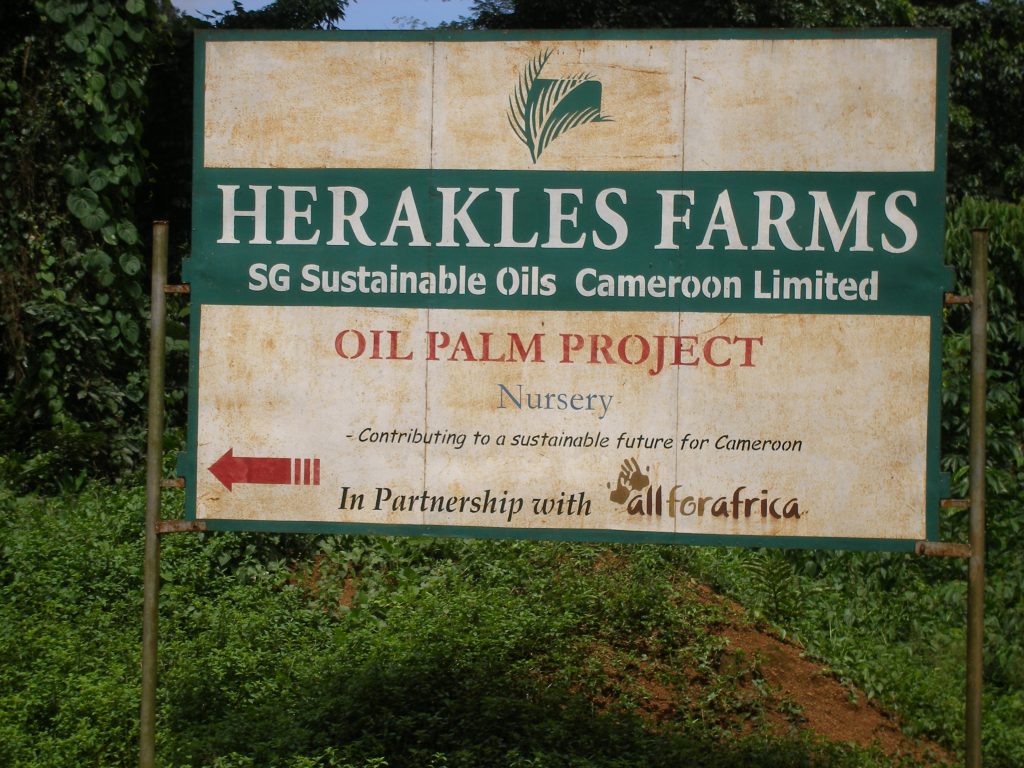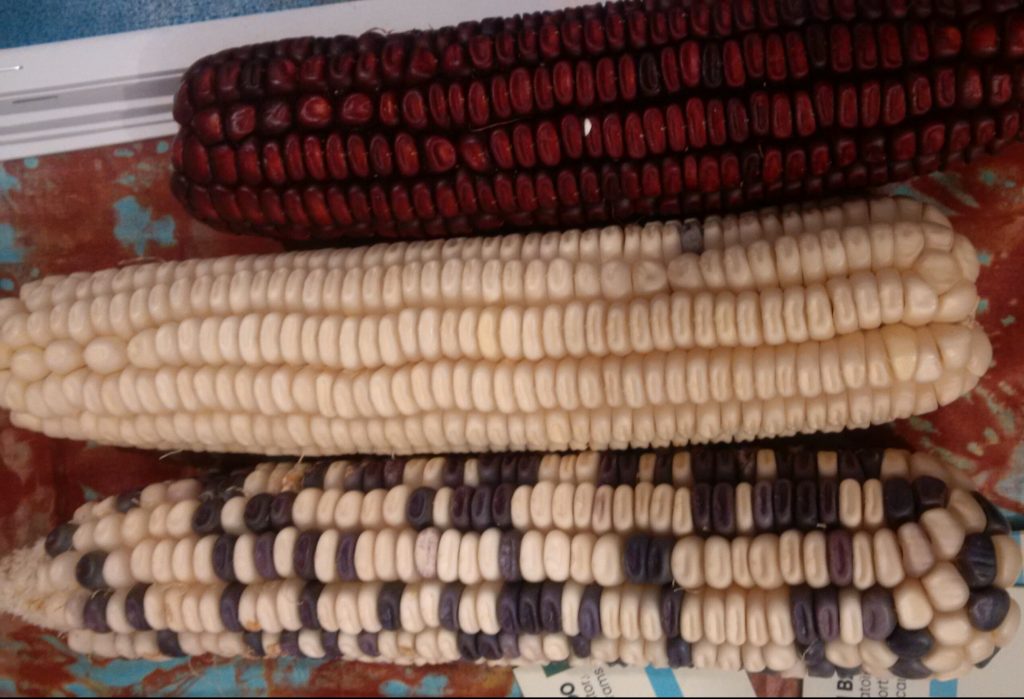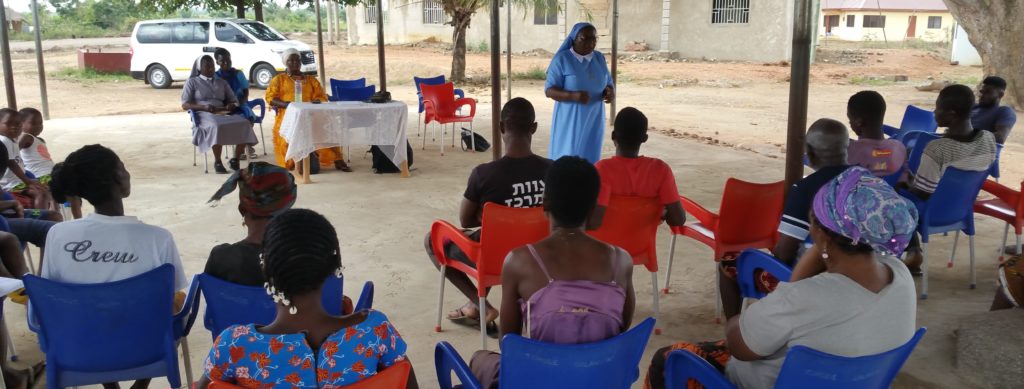
(To read the full report with analysis click here or to read the summarized version with activity pictures click here)
Ghana, which has been one of West Africa’s most politically stable countries since its independence from British rule, is facing another form of colonization, agro-colonization. “Ghana has seen a significant surge in large-scale land acquisitions (LSLAs) in recent years, and has in fact become one of Africa’s LSLA hotspots,” according to Land Matrix, a public database on land deals. Land Matrix also asserts that as of November 2020, of the 30,960,837.35 Ha acquired by foreign multinationals across Africa, 404,000 Ha are in Ghana, representing 8.6% of Ghana’s 4.7 million Ha of arable land.
AFJN proposes the adoption of agroecology. The Songhai Center in Benin with its integrated system of Zero Emission Research Initiative (ZERI) has proven the merit of agroecology and it informs AFJN’s preference for this agricultural model in Ghana and Africa in general. This model incorporates responsible and sustainable investment strategies that include the promotion of small farm holders.
Field Activities
| Date | Location Visited & Issues discussed or encountered | |
| 31/8/2022 | Nyatikpo: This community leased land in 2018. The community has repossessed the property because the investors abandoned the project. Realizing the relevance of heightened awareness, those who were present requested that a follow-up meeting be held to ensure specifically that the elders themselves hear the information we offered. We estimate that this community is at risk of land grab and needs to be properly informed. | |
| 31/8/2022 | Aborkope: Presentation to raise awareness of land grabbing. | |
| 31/8/2022 | Gbagbavuinu: Since the Chinese company Huawei Agriculture Development Center set up a fish farm and abandoned it, people have been dealing with flooding that destroys farmland and threatens their homes as well. They are helpless. | |
| 1/9/2022 | Kelorkpo: Briefed the community about land grabbing and we learned about the pollution of their two water streams, Kelor and Kolor. KOP Farms is alleged to be the polluter of the water streams. | |
| 2/9/2022 | Radio Adamu FM: Live show for public education about land grabbing and responsible investment. This radio station’s listening area includes big cities (Adaklu Waya, Ho, Mafi Mumase, Ziope, Kpedze, Kpetoe, Akatsi, Abuati, Tadzewu) and small cities (Klave, Tanyigbey, Sorkorgborga). | |
| 9/2/2022 | District Chief Executive: Courtesy meeting with Hon. Madame Juliana Kpedekpo. Personal briefing on the issue of land leasing and girls’ education. She offered partnership when possible. | |
| 9/2/2022 | Adaklu Waya Traditional Leaders: Closed-door briefing to chiefs followed by a full presentation carried live on radio for the benefit of the public. |
Of all these encounters, the stories from the people of Gbagbavuinu and Kelorkpo are most worthy of attention because of the harm they have suffered as a result of agribusiness investments.
Project in the Global Context
The ongoing acquisition of large tracts of farmland in developing nations, primarily in Africa, by multinationals and sovereign countries has led to the displacement of many people from their ancestral lands without adequate compensation. The phenomenon known as land grabbing or agro-colonialism threatens the livelihoods of Africa’s majority small farm holders and its countless food-related business owners, many of whom are women.
The takeover of Africa’s agriculture sector, a multibillion-dollar system, has devastating consequences that are economic, political, and geopolitical. The new scramble for Africa has nothing to do with ensuring food security for Africans. Instead, we are witnessing in real time the creation of a new world power center called agri-geopolitics, recognized simply by its vision of food production to bolster the advantages of geographical position; in other words, to create a world order where food production is a strategic tool for exerting geopolitical influence. With the disruption of the wheat market, the war in Ukraine has spotlighted what agri-geopolitics is already and what it can become. Among the most aggressive geopolitical players are wealthy multinationals mainly from outside the African continent.
Awareness and prevention programs are needed to ensure food independence and promote responsible investment in Africa’s agriculture. The same demands that some responsible African countries have been making of mining companies, namely that they transform raw materials locally, must be similarly made of all who want to invest in Africa’s agriculture. Such requirements must include the sale of part of the produce to local markets and the building of food-packaging factories locally.
Stated Goal of Project
- To shine light on land grabbing, the related dislocation of families, and environmental pollution through reckless use of poisonous artificial fertilizers, herbicides, and other chemicals.
- To raise awareness among the public and leaders about the need to protect the communal ownership of seeds and ensure biodiversity.
- To promote responsible investment and protect Ghana’s food sovereignty and security.
Key Concepts
Agro-Colonialism

Once land is acquired through long-term leasing (50-75 years, renewable one or twice for the most part), the control of people’s livelihoods is established. Example: Herakles Farms leased 73,086 hectares (Ha) of land in the Ndian and Kupe-Manenguba Divisions in Southwest Cameroon from the Government of Cameroon to develop a large-scale palm oil plantation for $1 per Ha per year, for 99 years, renewable once. Prior to this, on 11 January 2009, Herakles Farms signed a land lease located at Asukokoo Zongo, Frankeneko and Brewaniase /Ghana (deed No RV 252548 Serial No 357/2010) for $5 per Ha per year for 50 years, renewable for 25 years. In 2011, Nana Kyere Mrosa of Atebubu Stool, in Brong Ahafo Region leased 22,887.486 Acres (AC) (9,269.432 Ha) of arable land to African Plantation for Sustainable Development, paying Ghana Cedis 2.5 per Ha, per year, for 50 years, with the right to renew twice. (The value to the dollar on 31 December 2011 was 1.63 GHC). Africa Faith and Justice Network has seen these documents and met the affected people. Predatory land leases such as these are found across Africa and are evidence of the agro-colonialism and land grabbing that are already taking root. Ghana is not alone. Action to stop this trend is urgent before it is too late. Often presented as investment for development and job creation, it is in fact a wealth transfer to the already rich.
Agro-colonialism is a plan to tie Africans with an unbreakable economic chain much stronger than political, cultural, and mental colonization. Governments are not removed from playing a role in making agro-colonialism a reality. In “Backroom Bullying: The Role of the US Government in the Herakles Farms’ Land Grab in Cameroon,” Elizabeth Fraser and Frédéric Mousseau of the Oakland Institute show how the US Deputy Assistant Secretary of African Affairs Cynthia Akuetteh was pressuring the Cameroonian government to move quickly on the lease granted to Herakles Farms. At this time, national and international civil society organizations including Africa Faith and Justice Network were mobilizing to get the lease canceled. Thanks to the Freedom of Information Act (Title 5, USC Section 552), they were able to obtain a cable sent on 31 May 2013 from the US Embassy in Cameroon to the US Department of State showing the government’s involvement:
Akuetteh urged the Prime Minister to make a decision and take action to resolve the dispute. She told Yang that the United States does not want to tell Cameroon what decision to make, but Cameroon should act quickly and avoid arbitration or protracted legal proceedings. She warned that a failure to act could cause uncertainty in the local business climate and have a chilling effect on future foreign investment.
Note: Following a series of meetings the week of May 27, Herakles and the GRC [Government of the Republic of Cameroon] are reportedly reviewing the land allocations redrawing boundaries.
Maintaining the people’s sovereignty over seeds

Since 2014, Africa Faith and Justice Network (AFJN) has been educating Ghanaians about the dangers of agro-colonialism, a new form of colonization by foreign multinationals and agents of non-African countries who are taking over Africa’s agriculture sector. For Ghana, this simply means a sinister takeover of Ghana’s food production system in order to ensure that Ghanaians remain food dependent.
Ghana’s authorities recognized the country’s urgent need for food self-sufficiency and passed the National Biosafety Act in 2011 to enable the introduction of Genetically Modified Crops in Ghana’s agriculture food system. This law seeks to regulate the safe transfer, handling and use of Genetically Modified Organisms (GMO) with the exception of those that are for pharmaceutical use. Obviously, the introduction of GMO crops is intertwined with foreign land grabbing (Agro-colonialism) and unfortunately it is believed by Ghanaian authorities to be an answer to food insecurity.
The quiet spread across Africa of genetically modified crops such as corn is worrisome, requiring serious consideration and a strategic response. Kenya, for example, banned the importation and cultivation of genetically modified crops in 2012 to protect small farm holders and for safety reasons. The lifting of the ban this October 2022 by the newly elected President William Ruto is facing legal challenge in the high court filed by Mr. Paul Mwangi. The ongoing plan to genetically modify most of the local staple food crops threatens Africa’s future. The plan aims at replacing organic, indigenous, and publicly owned seeds and plants with genetically modified, privately owned crop seeds. Each planting season, every farmer will have to purchase seeds. This plan facilitates the transfer of wealth from poor small farm holders to rich foreign agribusiness giants.
In its 2017 report Down on the Seed: The World Bank Enables Corporate Takeover of Seeds, the Oakland Institute contrasts “farmer-managed seed systems” with the adoption of “chemical inputs and industrial seeds” that is favored by the World Bank. The report asserts that up to 90% of seeds for agriculture in developing countries still come from farmer-managed systems, and these crops are crucial to worldwide agricultural production. The traditional systems help preserve “agrobiodiversity, food security, and resilience against climate and economic shocks.” The diverse seeds provided by the farmer-based systems include varieties appropriate to certain environments.
The World Bank and many of its donors underestimate such advantages. They see chemical inputs and genetically modified seeds (“improved seeds”) as essential to feed the world. The agricultural inputs market, however, is controlled by an exclusive cartel of Western companies that will benefit most from the use of chemical fertilizers and GMO seeds. More than two-thirds of all commercial seed sales currently involve just six multinational companies. Farmers using GMO seeds are not free to use seed from their own crops, but must continue to buy the GMO seeds.
Land Grabbing and Toxic Waste
Toxic waste that finds no home in developed countries is smuggled into developing countries. Vigilance is needed to ensure that leased farmland does not become a dumping ground for toxic waste. Every land lease agreement must include a clause stating that nothing can be buried under the ground without the knowledge of the original landowner. The movement of toxic waste is hard to control when it is dumped on leased land that is considered private property. Such a clause can have legal weight to hold lessors accountable.
Agroecology: The Alternative
Food security is an essential indicator of development. Thus, every government must first and foremost ensure that citizens have enough food. Africa can successfully guarantee the nutritional needs of its people by practicing agroecology. The existing industrial model of monocropping poses environmental problems and requires more water, and much remains to be learned about the safety of genetically modified foods. It is imperative that Africans free themselves from agro-colonialism and have a strong position in the shifting agri-geopolitics. Landowners should lease to investors who exclusively practice agro-ecology. They should discuss options that include making the value of their land become shares in the investment venture. In this way, the landowners’ profit is guaranteed for the lifetime of the investment. Governments should pass laws mandating agroecology. In addition, foreign investors should establish transformation industries locally to increase job opportunities. These can include food packaging factories, cosmetics industries, and biofuel transformation plants. This is a way to avoid what has happened in the mining sector, where raw materials produced in Africa are transformed elsewhere. Such a bad economic model should not be repeated in Africa’s agriculture sector.
Education for Development

Why must Africa rely on foreign countries to produce what Africans eat when Africa has enormous human resources? Africans have to deploy means of reducing dependency on Asian and Western powers. The need for education must be underscored, especially the education of girls, who are often neglected and denied the same opportunities as their brothers. No one should be left behind in the development of African communities. Yet poverty is driving many people away, some to big cities, while others, especially girls, fall into the criminal networks of human traffickers.
Conclusion
Africa has the opportunity to be a leader in agro-ecology. Governments must make agroecology mandatory for any investor in its agriculture. The Songhai Center in the Republic of Benin, a model now replicated in more than dozen countries, offers an answer to skeptics and those who think less of Africa: a closed loop-farming model calling for waste from one part of the operation to be used to enhance another part of production. Loop-farming is sustainable and is therefore far superior to industrial farming.
Ghanaians have already lost much of their fresh water to pollution by mining activities. Ignorance of the sprawling nature of agro-colonialism now threatening agriculture likely prevails in much of the country, even as too many leaders remain silent or indifferent. The mobilization of citizens is needed to induce action by authorities.
For views of how synthetic fertilizers and chemical pesticides are doing harm and even penetrating the underground water table elsewhere in the world, see Teresa Cotsirilos, in Report: agriculture runoff is leading cause of water pollution in the U.S. published on 21 March 2022. She says that “After evaluating over 700,000 miles of rivers and streams across the country [the U.S.], they concluded that half of those waters are too polluted to fish or swim in — and agriculture is often to blame.” She further adds, “…agricultural industry … has polluted water and evaded accountability for the better part of half a century.” Which African government is ready to hold agri-businesses accountable? Money talks in most Africa capitals. The PBS Frontline documentary “Poisoned Water,” aired on 12 April 2009, also makes the case that whatever makes a frog have six legs and a male frog have ovaries threatens human life.
by Jacques Bahati, Policy Analyst and Thoughts Leader , Edited by Br. David P. Mahoney, CFX
